On October 2, the renowned New York Times bestseller and Stonewall Book Award Winner author Dashka Slater came to Oakmont. She held a journalism workshop for students, a panel-styled assembly, and a luncheon with students. She went into the depth of what her two books really meant or how they were written during all these events.
Thank you to the Ashburnham Cultural Council, the Westminster Cultural Council, and the local agencies supported by the Mass Culture Council: a state agency. Thank you also to the Ashburnham Westminster Foundation for Academic Excellence for the grant they provided. Special thanks to Mrs. Jenna Morin for setting these events up and Mr. Alex Dewhurst for assisting. Thank you to all for helping to make this event even possible.
When asking school librarian Morin about the visit and her favorite parts, she shared, “Simply getting to meet and chat with her! I always enjoy meeting authors and I think it’s fun to connect the real-life person to the book. The amount of energy and hard work that goes into writing and ultimately creating a finished book that you can hold in your hands, fiction or nonfiction, is staggering… Meeting an author can put that process into perspective. It was also rewarding to witness students interact and connect with her, whether it was about the book itself or another shared interest, like poetry.”
In The 57 Bus, Slater showed two sides of a true, but horrific story of a teenager who lit another teenager on fire on a bus. This book taught all who were reading a lesson from it. This book has helped spread awareness of the LGBTQ+ communities and the struggles they face. Also, the book shows the struggles of different ethnicities. Highlighting that one poor decision can affect the people around you and your situation.
Like The 57 Bus, Accountable is another heart-wrenching real-life story about the effect of social media if used incorrectly. In this book, readers see this through racial hate on the internet. It shows the consequences of immature actions if taken too far and how those actions can affect others.
Before Oakmont got an insight into our summer reading books, the journalism club had the opportunity to have a writers’ workshop with Slater. She showed us how she became the writer she is today and the tools we can use to improve our writing. Some things she shared were how to write more captivatingly and hook the reader, while also sharing a little about her life before she was an author.
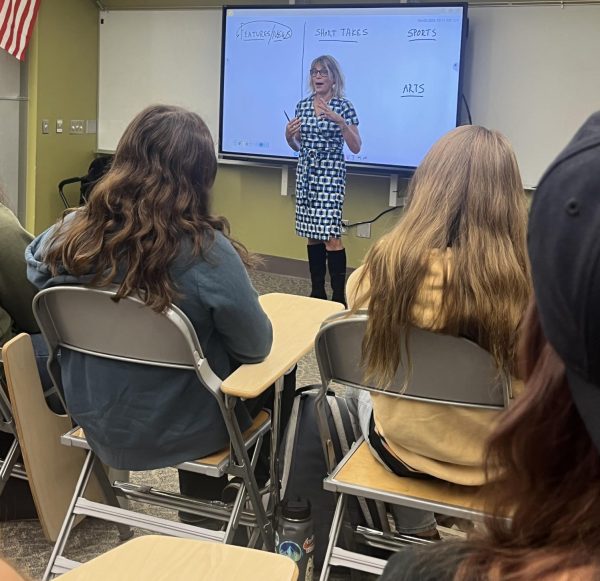
Slater is an author, journalist, and teacher who lives in Oakland, California. Before that, she was a poet who became a journalist who learned on the job – no journalism degree. During this time, she learned the art of long-form journalism, which she used to complete both of her books, along with the art of small “e” structured writing. She starts her stories at the climax, then goes to the beginning and explains events that lead to the climax.
Megan Vance, the Sports Editor of The Oakmonitor, who was also at the journalism workshop states, “The journalism workshop helped me see journalism from a different perspective. Slater’s ideas like long-form journalism and small e-structure writing were ideas I never heard before, but they will help me in the future.”
Slater explained and taught these ideas during the journalism workshop, mirroring an editorial board meeting. Slater helped the journalism class improve their writing and stories by creating better hooks, article structure, and writing about ideas that we enjoy into interesting articles others would enjoy. Slater helped the next generation of journalism students to become the best journalists they could be by giving them tools that could be used to become better at writing and reporting.
After the journalism workshop, Oakmont held a school-wide student panel-themed assembly with Slater. During this panel, students asked in-depth questions about her book and the true message of her books. She explained that she wanted to spread awareness of these matters that might not be seen nationwide differently than the conventional way of having a protagonist and antagonist.
Instead, she stayed true to what she said in the panel: “Look for facts that challenge your own beliefs.” She did this by making both characters, the victim and the one who caused the victim pain, relatable and humanized both of them. Showing them both to be kids makes you feel that they are not bad people but kids who make wrong decisions.
Samantha Kender, a student who participated in the panel and luncheon, shares, “I loved both of her stories and I thought their morals were very important because it’s morals you take with you throughout your life.”
This idea is shown to be received by many people such as Kate Terbush from The LA Times. Who wrote about The 57 Bus, “This book challenged my views and it started a conversation in my house that I thought I’d never have. We all changed, at least in my house, because of the book.”
Slater explained that she wrote these books to help let all the characters in both, The 57 Bus and Accountable, have a voice if they wanted to. Not a biased voice making one of them sound like the villain, but a voice that did not undermine their actions and told their true story. This idea is what made these books popular. Morin states, “… (Slater) demonstrated how issues always have multiple perspectives and shades of gray – without diminishing the wrong that had occurred.“
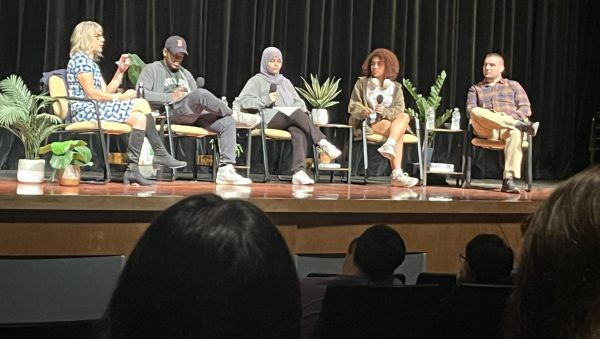
Many smart and thoughtful questions were asked at the panel like, “Why did Slater start writing and what was the true message of the books she was trying to portray?” One of the most anticipated questions that was asked was “What did she think of her two books The 57 Bus and Accountable being banned in some schools?”
Slater explained that she was just disheartened since these books were not meant to offend or hurt anyone in any way but to help the characters’ voices, and communities the characters represented to be heard and spread awareness to those who feel their opinions are left in the dark. The Horn Book shares this opinion stating, “…a powerful story of class and race (Sasha is white), gender and identity, justice and mercy, love, and hate. Slater has crafted a compelling true crime story with ramifications for our most vulnerable youth.”
To end, the panel Slater left us with a final message to help the next generation who are now becoming young adults: “You are not perfect, but you are good.” Explaining that we are kids, and though that doesn’t justify all our actions, we will make mistakes and that is ok. What we need to really remember is that we are learning and growing and that these mistakes do not hold us down, but teach us how to be better and strong individuals. That was the end of the panel but not of the time students got to spend time with Slater.
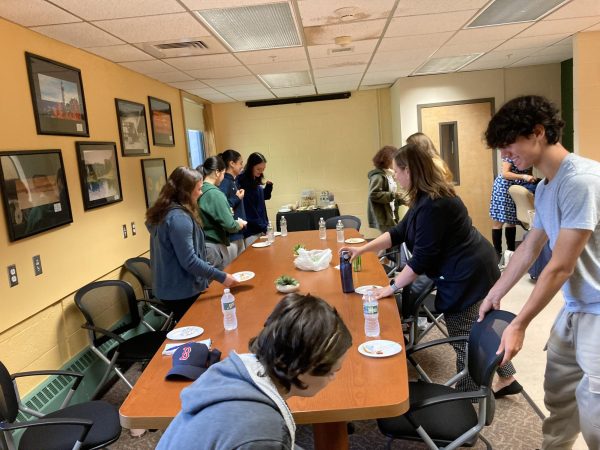
Slater later had a luncheon where a few students had the opportunity to ask Slater questions they had about the book or the panel. She also goes more in-depth into how the world works and the importance of seeing things from different perspectives.
There Dashka shared her opinion on many topics that were discussed, emphasizing one key attribute that not only helps reporters but will help everyone in this world in day-to-day life: perspective. She shared that perspective is the key to how people react to certain situations and how they perceive them is due to each person’s own prior experiences.
To close the day off Slater signed books and chatted with students. Leaving a memory forever implanted in their hearts.
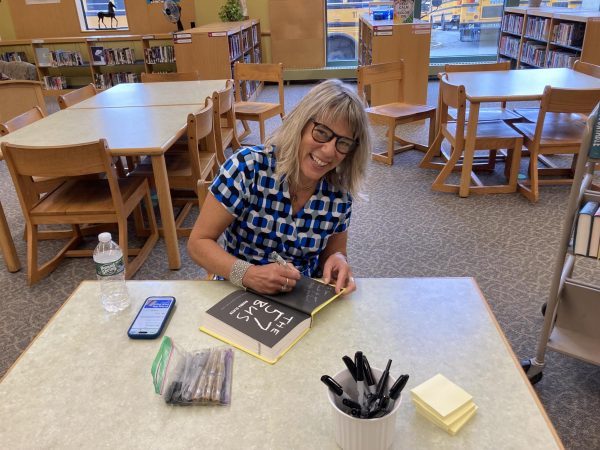
Slater is a powerful and intelligent author who taught Oakmont students the importance of being aware of life outside our little bubbles, and to help spread awareness any way we can. While still making sure we had as little bias as possible and all people were heard fairly. She taught us the importance of writing about topics that we are interested in while making it interesting for others. To top it off she was a kind person who made it a fun day for many Oakmont students.
Thank you for coming Dashka Slater and teaching us the importance of perception in life. Huge thanks to all of the sponsors, Mrs. Morin and Mr. Dewhurst, and the Summer Literacy Committee for making this event happen.



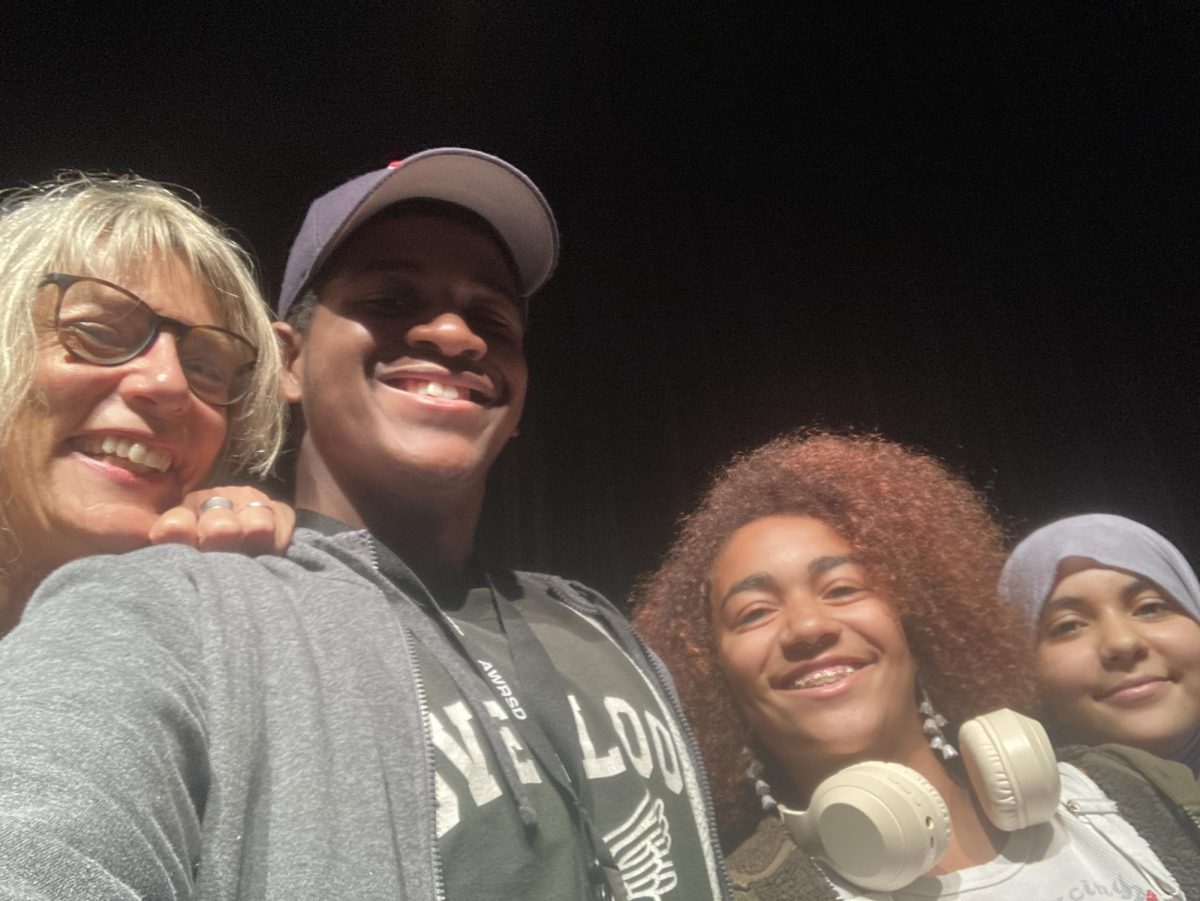






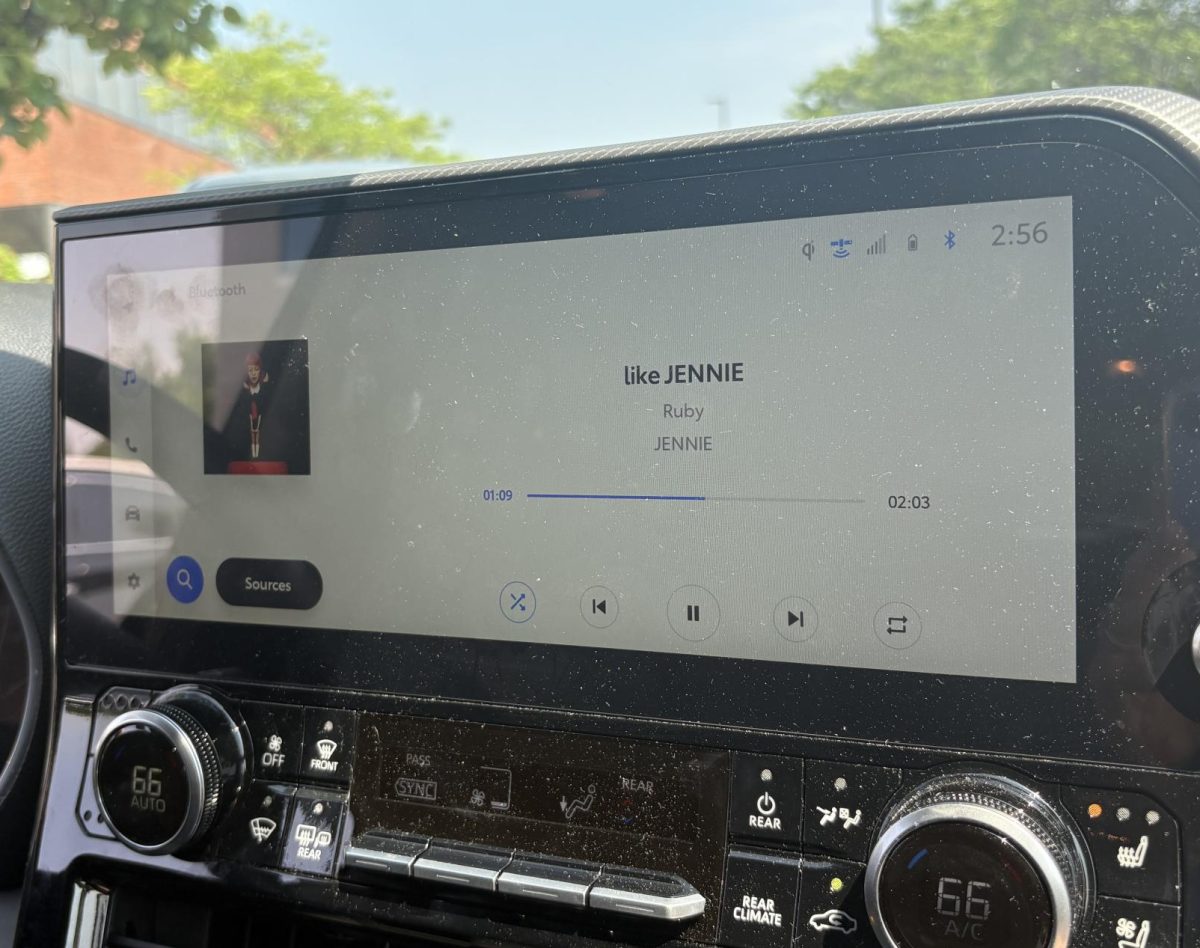
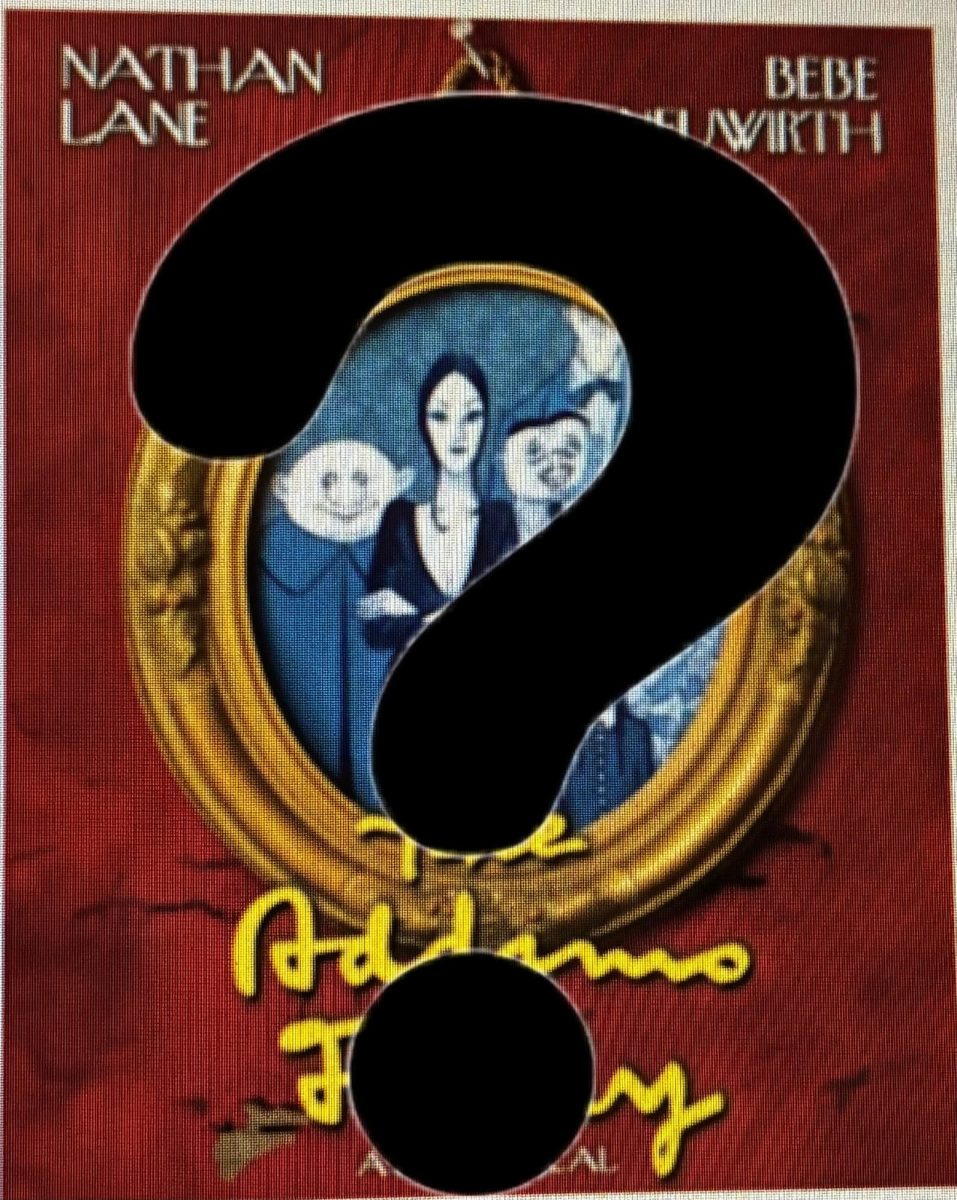
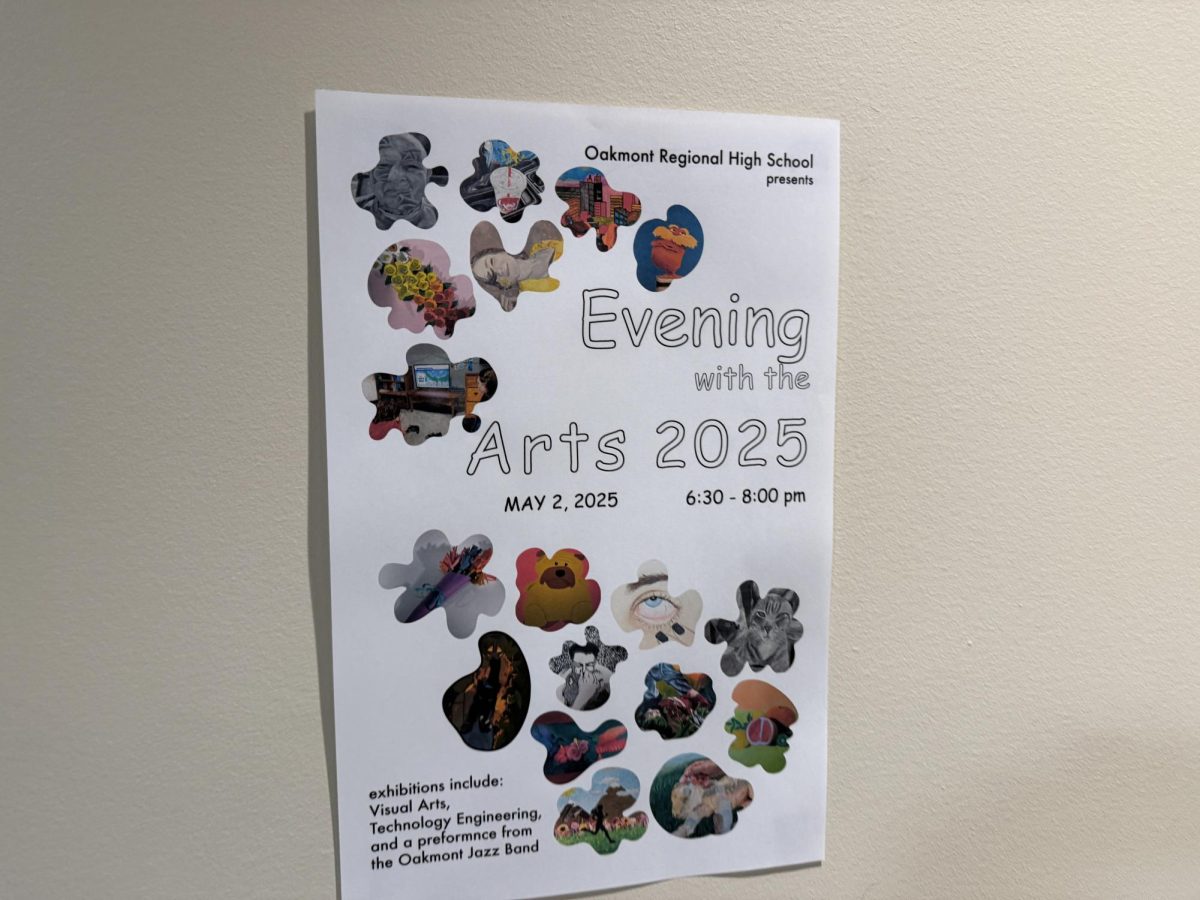



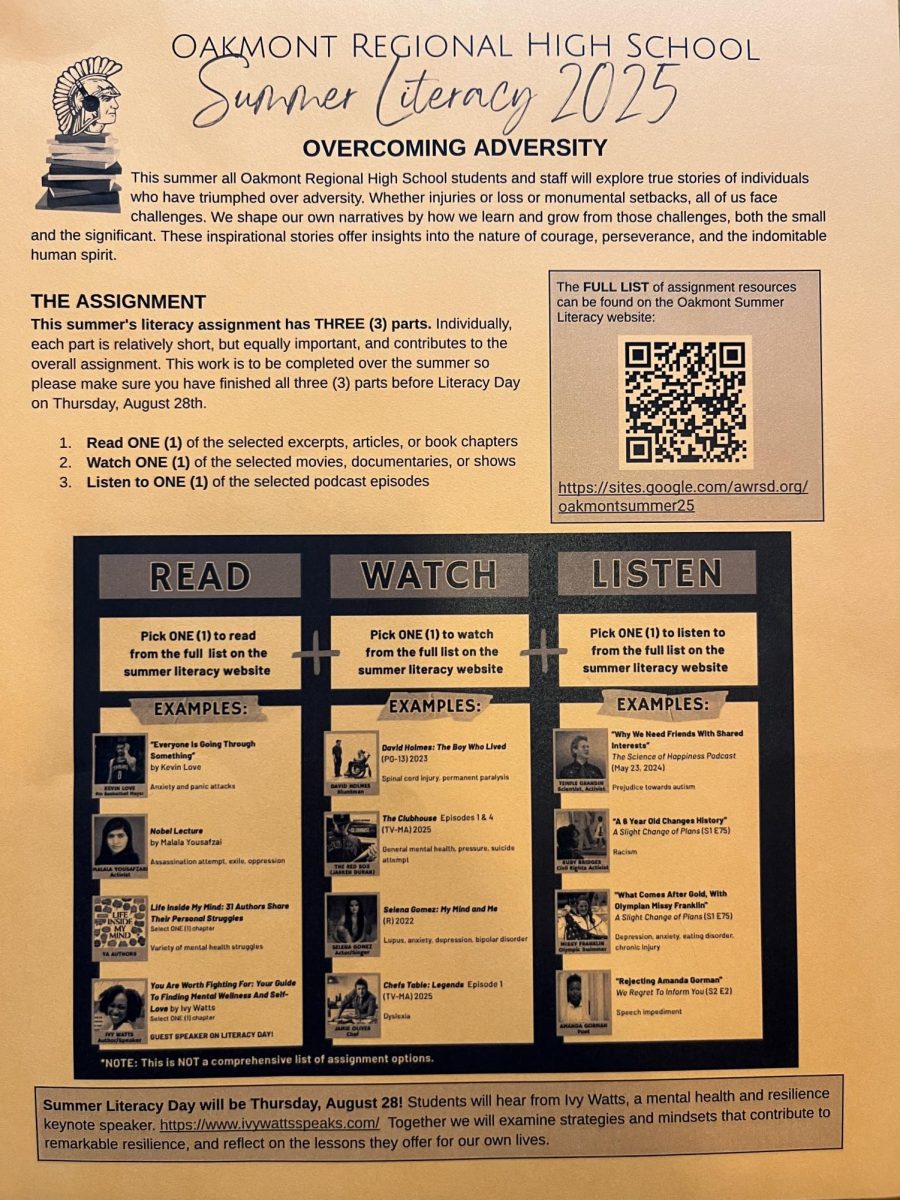
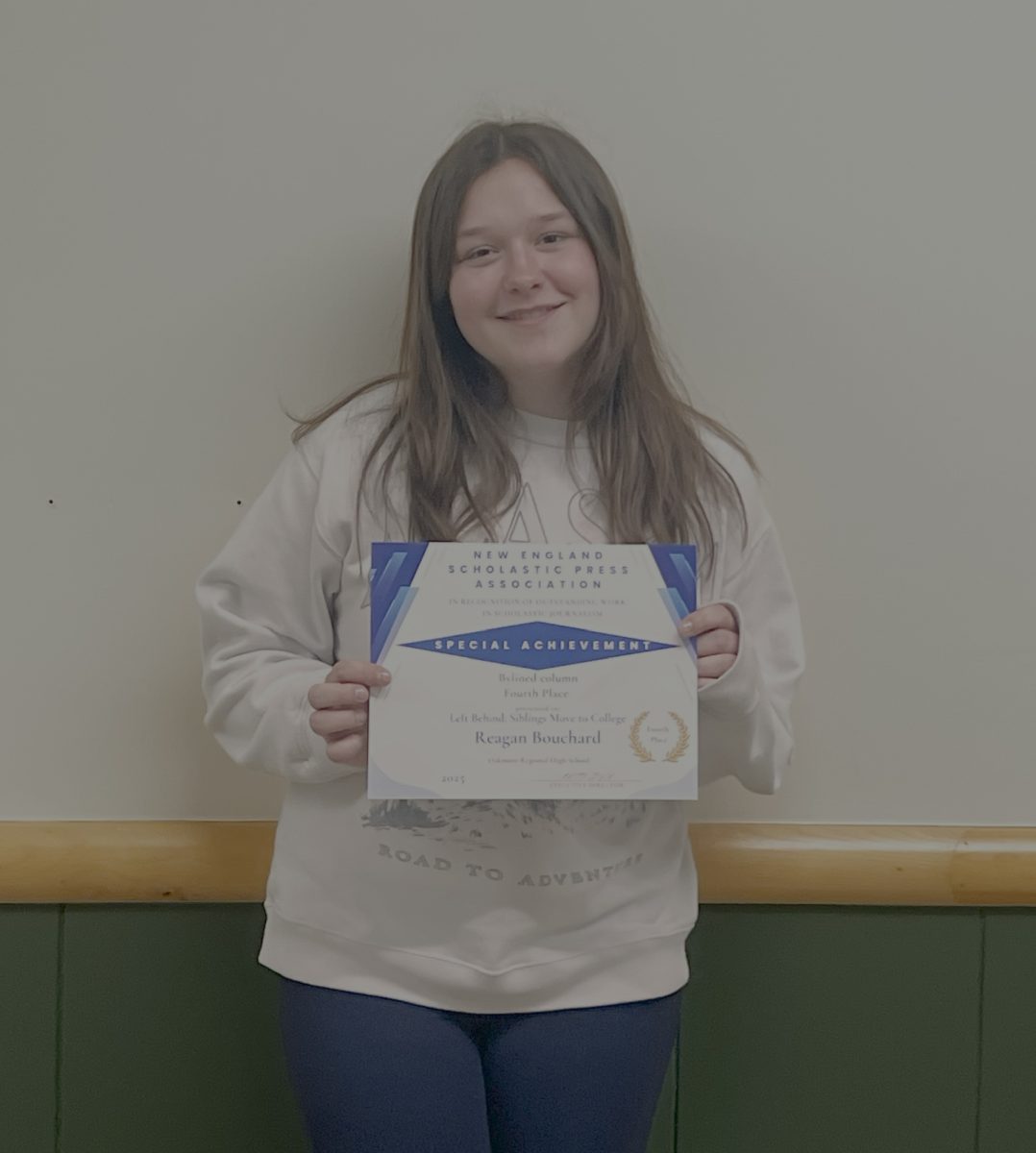
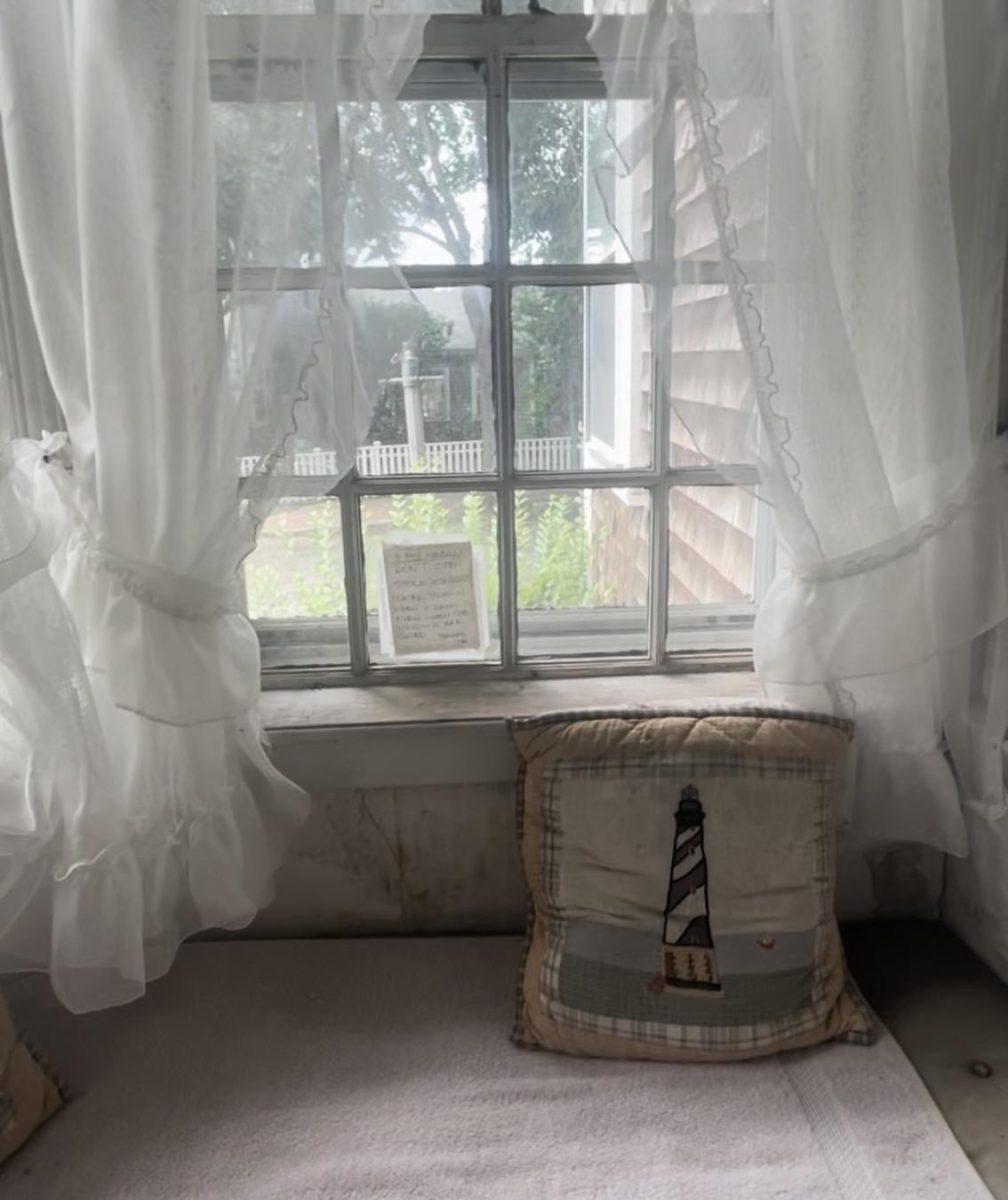
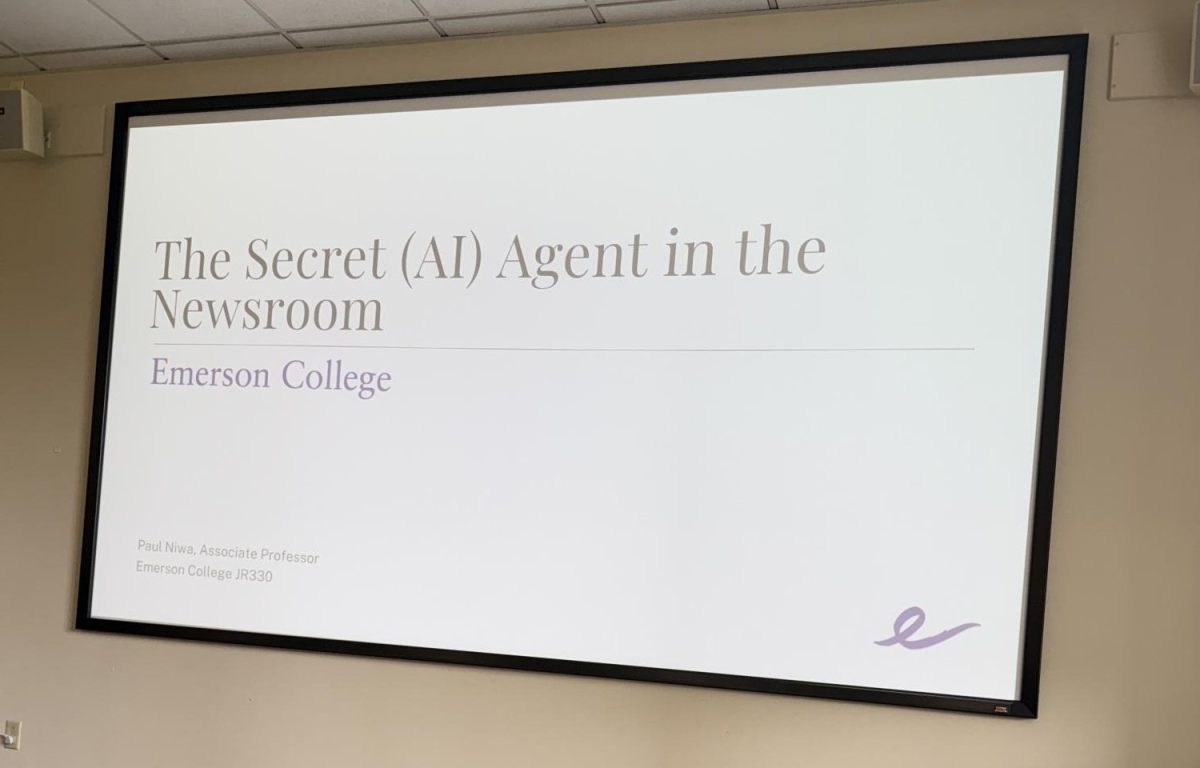
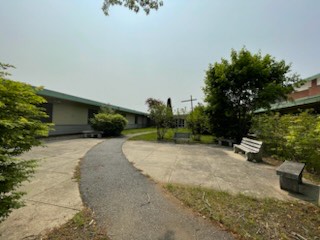
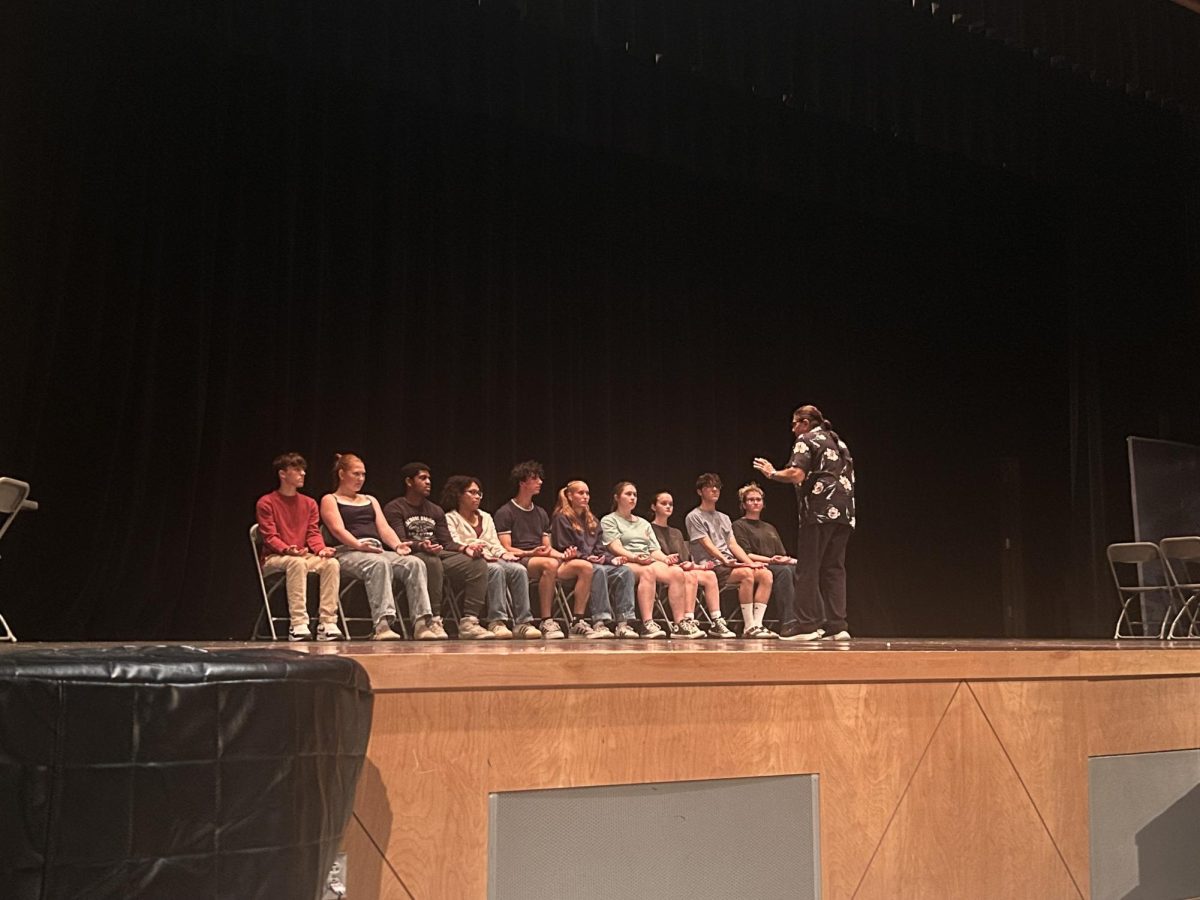
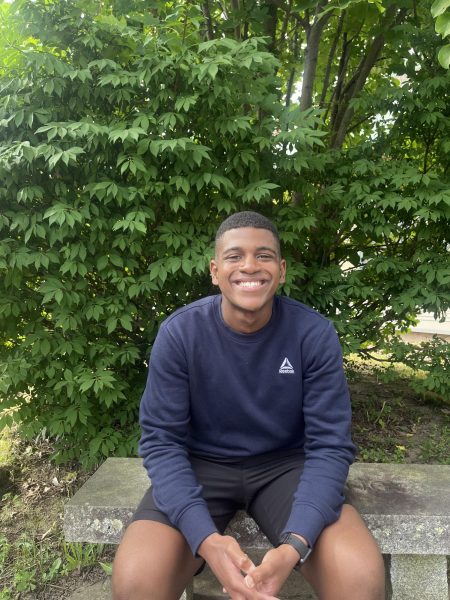
Jada Sandjong • Nov 1, 2024 at 11:29 am
I like how you talk about the lessons the author is trying to teach us, and how we use those lessons in our life
Silas Roy • Nov 1, 2024 at 9:37 am
Great article Brian, it was very insightful and even though I was there for all these events I still felt like I learned a lot from this. Very well written as well.